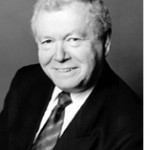By Rabbi Dow Marmur
 JERUSALEM–Is Jewish identity primarily national or religious? Though Judaism is, indeed, a combination of both (Jewish civilization, as Mordechai Kaplan called it), Zionism has put nationalism before religion. Being a Jew in Israel is much more being a member of the Jewish people than of the Jewish faith. The so-called conversion crisis in Israel today is because anti-Zionist ultra-Orthodoxy that has the franchise on conversions asserts that it’s only the religious dimension that counts.
JERUSALEM–Is Jewish identity primarily national or religious? Though Judaism is, indeed, a combination of both (Jewish civilization, as Mordechai Kaplan called it), Zionism has put nationalism before religion. Being a Jew in Israel is much more being a member of the Jewish people than of the Jewish faith. The so-called conversion crisis in Israel today is because anti-Zionist ultra-Orthodoxy that has the franchise on conversions asserts that it’s only the religious dimension that counts.
And for Orthodox Jews, religion means halakhic observance. As the ultra-Orthodox control the administration of religion in Israel and often denounce Zionism, they’ll only accept a convert if s/he conforms to their criteria. They also want total control. That’s why they reject conversions performed by rabbis abroad, including their Orthodox colleagues, and now try to stop IDF rabbis from dealing with soldiers’ status.
Non-Orthodox rabbis in the Diaspora largely adhere to the religious model. Most expect “Halakhah Lite” and add a little theology to the mix. That’s a major reason, according to Daniel Gordis of the Shalem Center in Jerusalem, why peoplehood matters less and less in the Diaspora. As a growing number of “post-ethnic” American Jews have non-Jews in their family, or are Jews by choice, they don’t see Judaism primarily in terms of peoplehood. Hence their ever more tenuous relationship to Israel.
For most Israelis identity is established largely by belonging, not by believing. The ultra-Orthodox rabbis who handle conversions in Israel still regard the Jewish state as “a shtetl with an army,” as Yair Sheleg put it recently in Ha’aretz. He added that they “continue to uphold the precedence of the religious aspect” which is “the root of their opposition to Zionism.” Their conversion policy is thus undermining the state.
Though himself an observant Jew, Sheleg urges Israelis to reject this approach by creating institutions that would accept all who want to become part of the Jewish people. He implies, I think, that they should reject Talmudic criteria in favour of Biblical norms. When the Bible’s most famous Jew by choice, Ruth, joined her mother-in-law Naomi, she said first, “your people is my people” and only then, “your God is my God.”
Sheleg suggests that this should also be the order in the Jewish state: first peoplehood, then religion. The curriculum should, therefore, mainly consist of Jewish history and how to live in “Jewish time.” The fine points of Halakhah and the subtleties of theology should be matters of individual preference, not collective acceptance.
Israel isn’t a religious state but a Jewish state. Therefore those who want to take upon themselves the obligations of citizenship should be accepted with open arms, whatever their religious background and current faith commitment. And those who convert in the Diaspora, where religious affiliation is more important, should also be exposed to Jewish peoplehood; perhaps the curriculum should include a visit to Israel with a suitably designed programme to stress and celebrate Jews, not only Judaism.
Unless and until that happens, the present conversion crisis will prevail. It’ll continue to give the Israeli ultra-Orthodox rabbinate a lever to be used without regard for the individual hardships and the collective unrest it’s creating. And the combination of ultra-Orthodox rejection of converts from abroad with a lack of understanding of Jewish peoplehood on the part of these converts will further alienate the Diaspora from Israel.
*
Rabbi Marmur is spiritual leader emeritus of Holy Blossom Temple in Toronto. He now divides his year between Canada and Israel. He may be contacted at dow.marmur@sdjewishworld.com